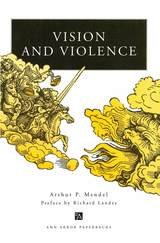
This unusual biographical work traces the life and career of Ademar of Chabannes, a monk, historian, liturgist, and hagiographer who lived at the turn of the first Christian millennium. Thanks to the unique collection of over one thousand folios of autograph manuscript that Ademar left behind, Richard Landes has been able to reconstruct in great detail the development of Ademar's career and the events of his day, and to suggest several major revisions in the general picture held by current medieval historiography.
Above all, the author's research confirms and elaborates the realization (first articulated over sixty years ago by the historian Louis Saltet) that in 1029 Ademar suffered a humiliating defeat at the height of his career and spent his final five years feverishly producing a dossier of forgeries and fictions about his own contemporaries that has few parallels in the annals on medieval forgery. Not only did that dossier of forgeries succeed in misleading historians from the twelfth century right up to the twentieth, but few historians have been willing to explore the implications of so striking a revision in Ademar's biography. Richard Landes is the first to systematically examine the evidence and the implications for our understanding of the period, and he offers an explanation of how these remarkable developments might have occurred.

Much of the book is devoted to an examination of the persistence of the apocalyptic heritage from ancient Greek and Hebrew civilizations, through the religious revivals of the Middle Ages and the Enlightenment belief in progress, to its importance in Hegelian and Bolshevik thought, and finally to its expression today in the resurgence of religious fundamentalism in Judaism, Christianity, and Islam.
Mendel concludes his remarkable book with an appeal for the more modest and humane philosophy of the "repair of the world," which, he argues, is central to biblical teaching.
The late Arthur P. Mendel was Professor of History, University of Michigan, specializing in Russian intellectual history. His first book, Dilemmas of Progress in Tsarist Russia: Legal Marxism and Legal Populism, established him as one of the outstanding historians of his generation. Richard Landes is co-founder, with Stephen O'Leary, of the Center for Millennial Studies. He is also Associate Professor of History, Boston University, and author of Relics, Apocalypse, and the Deceits of History: Ademar of Chabannes, 989-1034.
READERS
Browse our collection.
PUBLISHERS
See BiblioVault's publisher services.
STUDENT SERVICES
Files for college accessibility offices.
UChicago Accessibility Resources
home | accessibility | search | about | contact us
BiblioVault ® 2001 - 2024
The University of Chicago Press









